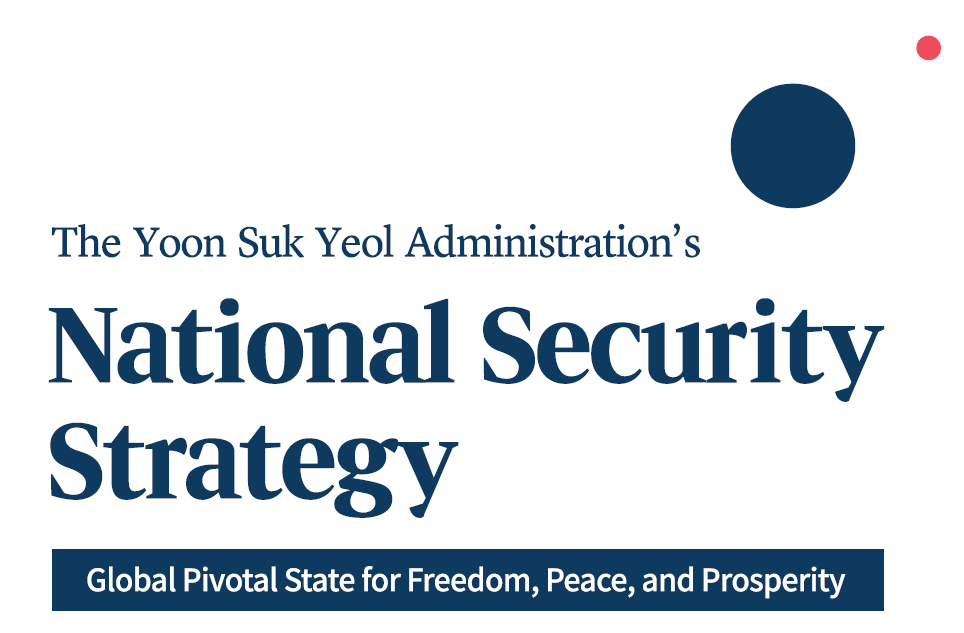Understanding South Korea's most recent national security strategy offering
The smart diplomat must pay heed to long term trends rather than five year spells of rhetorical fury.
For those outside of South Korea, or unfamiliar with South Korea’s government traditions, there may be some confusion regarding the recently released National Security Strategy. As I often explain to people, South Korea does not do foreign policy (or maybe anything) like back home. This is evident the moment one opens the document and is confronted with the cover page (see above).
The cover page explicitly states that the document is “The Yoon Suk Yeol Administration’s” national security strategy. The title therefore implies it is not necessarily the Republic of Korea’s national security strategy. If the reader doubted ownership, the sub-title reinforces it with the loud political catchphrase “Global Pivotal State for Freedom, Peace, and Prosperity”. This iteration of strategy lasts only as long as the administration.
When a national security document is released in the U.S, U.K. Australia, Canada, Japan, or Europe, the document is prepared to address changes in the security environment that necessitate preceding documents be updated.
The document is prepared by the (hopefully) non-partisan public service within the guidelines of the executive office (presidential or prime ministerial office). There is a broad understanding that opposition consultation has been undertaken to ensure a degree of bipartisanship with the understanding that the document and its processes will be explored in subsequent parliamentary processes and/or national audit office investigations. Ostensibly, the document is thus tied to the nation, not an individual, party, or ideology. The document will outlast the administration. It will last as long as it remains relevant to the security environment. Not so in South Korea.
A simple word count on the use of the president’s name serves as a rough contrast. South Korea’s national security strategy mentions Yoon 121 times (aided by a running footer reminding the reader of the Yoon Administration’s ownership. The U.S. national security strategy mentions Biden just 5 times! While the U.S. National Security will utilize quotes from the President to reiterate points, its emphasis is on “the people” and the “the nation” rather than the individual currently holding the office. This is a glaring difference and needs to be remembered.
As previously detailed in Future Proof? Korea’s Indo-Pacific Strategy and Presidential Initiative Longevity, in South Korea, “...all grand presidential foreign policy plans, regardless of their worth or long-term value to the nation, are abandoned and ultimately discarded as the administration winds down” - particularly those that are intimately and emphatically tied to an individual.
It must be remembered that the National Security Strategy released by the Yoon Administration is not just about national strategy. It is about an ongoing domestic political competition that will see national security take second place as subsequent administrations pick and choose what to sustain and what to discard. Security and strategy in South Korea falls victim to the pendulum swing of domestic politics. The smart diplomat must pay heed to long term trends rather than five year spells of rhetorical fury.




